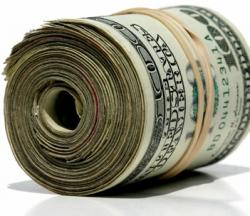Tax Proposals Target Restaurants Around The Country
October 1, 2010 | 2 min to read

In states and municipalities across the country, it’s a tossup as to whether public bookkeepers or private businesses have used up more red ink in the past couple of years; either way, it’s clear that several new proposals aimed at shoring up public resources have restaurants seeing red.
Struggling restaurants contributed less to the public coffers as business slowed, since taxes based on sales fell as traffic dropped and guests who did dine out opted for lower-priced meals to fit their newly lean budgets. Now, officials in several municipalities have proposed revenue-raising solutions that involve increasing existing taxes or adding new fees, both of which would raise prices and potentially turn off consumers who are only now starting to return.
In Omaha this week, a group of at least four restaurant owners has banded together in an attempt to block a new tax on restaurant sales that’s slated to start Friday. The coalition hopes to win an injunction preventing the city-created tax from taking effect, arguing that the additional 2.5% fee on bar, restaurant and catering receipts is actually a sales tax, La Casa Pizzeria owner Nicole Jesse told the Omaha World-Herald; state law confers the power to create a sales tax on the Legislature alone. Restaurant owners told the newspaper that they worry about the extra costs involved in reprogramming their computers to calculate the new tax and, of course, they fear lost business when the price of a meal goes up.
Proposals in other parts of the country seek to tie together the sources and beneficiaries of the revenue more closely, although the fees would still mean higher taxes for restaurant operators and their patrons.
To read the rest of the story, please go to: SmartBlog on Restaurants.
